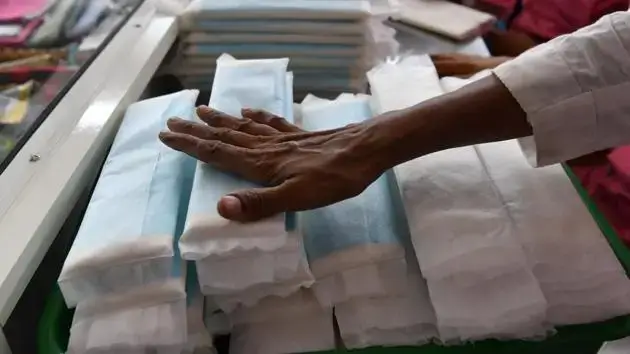
Introduction to cotton pads
Cotton pads have become a staple in many households, serving various purposes from skincare routines to household cleaning. These versatile products are not only popular but also increasingly sought after due to their eco-friendly nature. As consumers become more conscious of their choices, the demand for sustainable and quality cotton products has surged.
Sourcing directly from a cotton pad factory offers businesses an opportunity to meet this rising demand while reaping significant benefits. Bulk purchasing can transform your operations and align with today’s values of sustainability and efficiency. Let’s dive into why sourcing from a cotton pad factory could be the game changer you’ve been looking for.
The rise of eco-friendly and sustainable products
The demand for eco-friendly and sustainable products has surged in recent years. Consumers are becoming more conscious of their purchasing choices. They want items that not only serve a purpose but also respect the planet.
Cotton pads, for example, have transformed from simple beauty essentials to symbols of sustainability. Many people now seek alternatives that reduce waste and environmental impact. As awareness grows, brands are responding by prioritizing ethical sourcing and production practices.
This shift is not just a trend; it’s reshaping entire industries. Companies that embrace sustainability often find themselves gaining loyal customers who value transparency and responsibility.
As innovations emerge, the market continues to expand with green options across various sectors. The rise of these products represents a collective move toward healthier lifestyles and a cleaner environment.
Advantages of sourcing from a cotton pad factory
Sourcing from a cotton pad factory offers numerous advantages for businesses looking to enhance their product offerings. One primary benefit is access to high-quality materials. Factories specialize in producing cotton pads, ensuring consistency and reliability.
Additionally, working directly with a manufacturer opens the door to better communication. This relationship enables quick responses to inquiries and adjustments in orders as needed.
Another significant advantage is scalability. Whether you need small or large quantities, factories can accommodate varying demands effortlessly.
Moreover, sourcing from these facilities often leads to reduced lead times for production and cotton pad manufacturer shipping. Businesses can respond faster to market trends or customer needs without compromising on quality.
Many cotton pad factories invest in innovative technologies that streamline production processes, ultimately benefiting your bottom line while maintaining product integrity.
Cost-effective and efficient bulk purchasing
Bulk purchasing from a cotton pad factory offers significant cost advantages. When you buy in larger quantities, manufacturers often provide better pricing. This can lead to substantial savings over time.
Efficiency is another factor to consider. Streamlined ordering processes mean less time spent managing inventory and more focus on your core business activities. With fewer transactions needed, businesses can optimize their supply chain.
Additionally, bulk buying helps ensure consistent product availability. You won’t have to worry about running out of stock unexpectedly. This reliability allows for smoother operations and happier customers.
By sourcing directly from a factory, you also eliminate middlemen fees associated with retail purchases. Every dollar saved can be reinvested into other areas of your business or passed on as value to consumers.
Choosing a cotton pad factory for bulk orders is not just economical—it makes operational sense too.
Customization options for businesses
Sourcing products from a cotton pad factory opens the door to endless customization options for businesses. You can tailor your cotton pads to meet specific branding needs and customer preferences.
Consider choosing colors, sizes, and packaging designs that resonate with your target audience. This flexibility enhances brand identity and fosters customer loyalty.
Many factories also offer unique features like organic materials or special textures. These options not only set your product apart but also cater to niche markets demanding sustainability.
You can even collaborate with manufacturers on private label initiatives. This empowers you to create a distinct line of cotton pads that align perfectly with your company’s vision.
Customized solutions allow you to innovate while remaining competitive in a crowded marketplace. The ability to personalize products adds significant value and strengthens connections with consumers looking for something special.
Quality control and assurance
Quality control in a cotton pad factory is paramount. It ensures that every product meets high standards before reaching consumers. This process begins with sourcing the finest raw materials, which are crucial for producing soft and absorbent pads.
Regular inspections throughout the manufacturing stages help identify any issues early on. Trained professionals assess everything from fabric quality to stitching integrity. Such scrutiny minimizes defects and enhances overall product reliability.
Moreover, stringent testing protocols guarantee that the final products are safe for users. This diligence not only builds trust but also fosters brand loyalty among customers who prioritize quality.
Implementing ISO certifications further demonstrates commitment to excellence in production practices. By adhering to international standards, factories can assure clients of consistent performance across all batches produced.
Environmentally friendly production processes
Sourcing products from a cotton pad factory often means embracing environmentally friendly production processes. Many factories prioritize sustainable practices that minimize their carbon footprint.
These facilities typically use organic cotton, which is grown without harmful pesticides or synthetic fertilizers. This choice not only protects the environment but also promotes healthier soil and ecosystems.
Water conservation is another critical aspect of eco-friendly production. Advanced techniques are employed to reduce water fashion usage during manufacturing, ensuring minimal waste.
Moreover, many factories implement energy-efficient machinery and renewable energy sources. This shift helps decrease reliance on fossil fuels while supporting cleaner air quality.
By choosing suppliers with a commitment to sustainability, businesses can align their values with those of eco-conscious consumers. The result? A product that stands out in both quality and ethical standards.
Conclusion
Sourcing products from a cotton pad factory offers numerous benefits for businesses looking to purchase in bulk. The trend toward eco-friendly and sustainable products is reshaping consumer expectations, making it essential for companies to align with these values. By opting for cotton pads produced in responsible ways, businesses can meet the demands of conscious consumers.
Bulk purchasing allows companies to lower costs while ensuring they have ample stock on hand. This not only aids in budgeting but also enhances operational efficiency. Customization options provided by factories allow brands to differentiate themselves in the marketplace and cater specifically to their target audience’s needs.
Quality control is another vital aspect that sourcing directly from a manufacturer ensures. Factories often adhere to rigorous standards, guaranteeing that every product meets specific criteria before it reaches customers’ hands.
Moreover, many cotton pad manufacturers prioritize environmentally friendly production processes. From organic farming practices to reduced carbon footprints, partnering with these factories aligns your business with sustainable ideals.
Embracing these advantages means more than just improving your bottom line; it’s about committing to quality and sustainability while satisfying customer preferences. Choosing the right cotton pad factory can be a game changer for any brand dedicated to excellence and responsibility.



